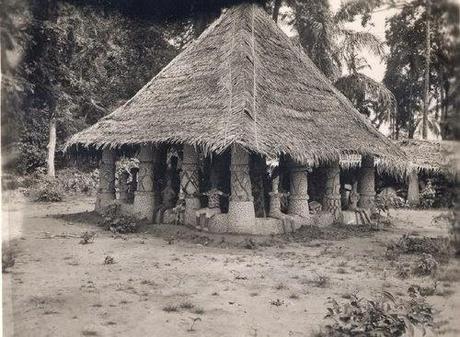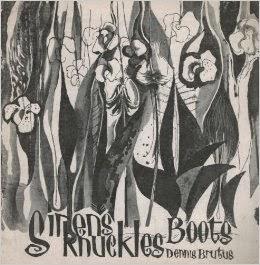
Igbo Mbari House (Source: Nairaland.com)
The Mbari Club was founded in Ibadan in 1961 by German scholar, writer and editor Ulli Beier (the founder ofBlack Orpheus), Nigerian writers Wole Soyinka, Christopher Okigbo and JP Clark and South African writer Ezekiel Mphahlele. Located in Ibadan’s Dugbe Market, the site of the Mbari Club was an old Lebanese restaurant that was converted into an open-air performance venue, an art gallery, a library, and an office. Nigerian dramatist, Duro Ladipo (along with Beier and Mphahlele) also developed a similar club at Oshogbo in 1962, which was called Mbari Mbayo. Other members of the club included Chinua Achebe, Francis Ademola, Demas Nwoko, Mabel Segun and Uche Okeke.The name Mbari was actually suggested by Chinua Achebe after the mbari ceremony of the Owerri Igbo, as this piece by James Eze reveals:
"When did you found the club? You ask. 'I think in 1960 and it was Chinua who gave it a name. Mbari is an Igbo name. Soyinka and I were tossing around in search of a name to give the club and then Chinua rang and said "what about Mbari?" And I jumped at the name because I knew Mbari Houses,' he recalls with a nostalgic glint in his eyes".Mbari publications (which grew out of the journalBlack Orpheus and the Mbari Artists’ and Writers’ Club), was unique as it was said to be the only African-based publisher bringing out books of Anglophone African literature in the early 1960s. It also published some iconic works of African literature - the first books by Clark, Okigbo, and Soyinka alongside translations of francophone poetry and work by South African writers critical of apartheid.

In the 1960s, Mbari Club was a center of cultural activity in Nigeria for artists, writers and anybody involved in the arts, but it was more than that. Mbari not only promoted African writers, but it also provided a local outlet for publishing with a transnational reach and encouraged writers to find inspiration for their work in their own contexts rather than in colonial stereotypes about Africa. It's also said to have been a crucial prelude for several young African writers to being published in London and New York.


